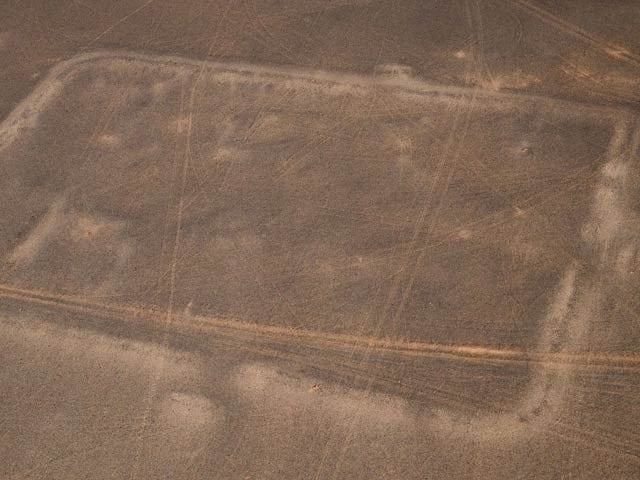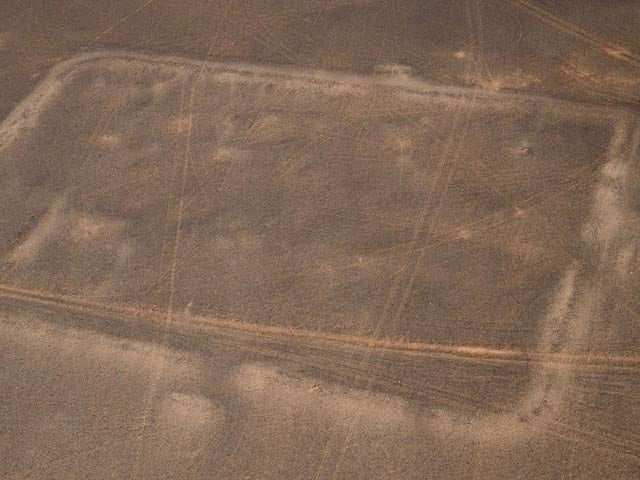
Traces of a 2000-year-old Roman military camp have been found in Saudi Arabia. Photo: Courtesy of the BBC
Saudi Arabia: A small and two large Roman military camps have been discovered in the Luq Daq desert of Saudi Arabia, which are about 2000 years old.
Scientists from the University of Oxford’s Department of Archeology have made this important discovery during remote sensing from satellites. According to archaeologists, it is believed that when the Roman forces from Jordan came to the land of Saudi Arabia, this military camp was built at that time, which was hidden from our eyes until now.
According to the head of the research team, Dr. Michael Friedley, these structures were ultimately built by the Romans. According to Dr Michael, the description of the rectangular military camp has been published in the scientific journal ‘Antiquity’. According to him, a way to enter the camp has also been made from one side.

According to Dr. Friedley, a large camp is on the western side while two smaller camps have been discovered to the east. They belonged to the Nabataean dynasty which was established in Europe in 106 AD. In the same period, the monuments called Petra were built, which are still present in Jordan and have world fame.
According to experts, this research will help in a new aspect of European conquests and campaigns. However, these military camps were established temporarily. But despite the passage of thousands of years, they are still in a wonderful condition.
(function(d, s, id){
var js, fjs = d.getElementsByTagName(s)[0];
if (d.getElementById(id)) {return;}
js = d.createElement(s); js.id = id;
js.src = “//connect.facebook.net/en_US/sdk.js#xfbml=1&version=v2.3&appId=770767426360150”;
fjs.parentNode.insertBefore(js, fjs);
}(document, ‘script’, ‘facebook-jssdk’));
(function(d, s, id) {
var js, fjs = d.getElementsByTagName(s)[0];
if (d.getElementById(id)) return;
js = d.createElement(s); js.id = id;
js.src = “//connect.facebook.net/en_GB/sdk.js#xfbml=1&version=v2.7”;
fjs.parentNode.insertBefore(js, fjs);
}(document, ‘script’, ‘facebook-jssdk’));



